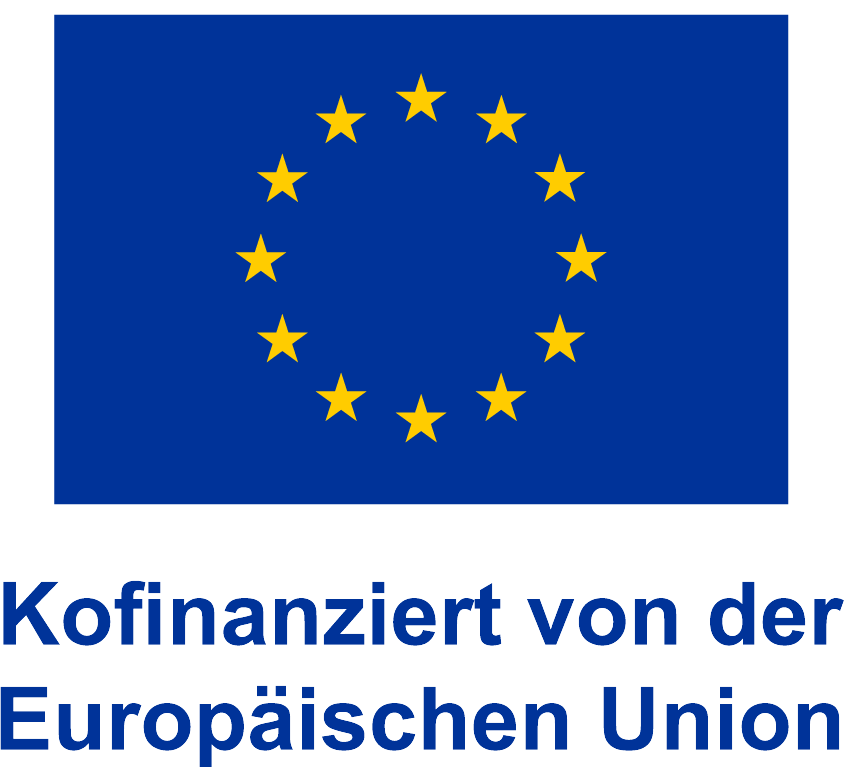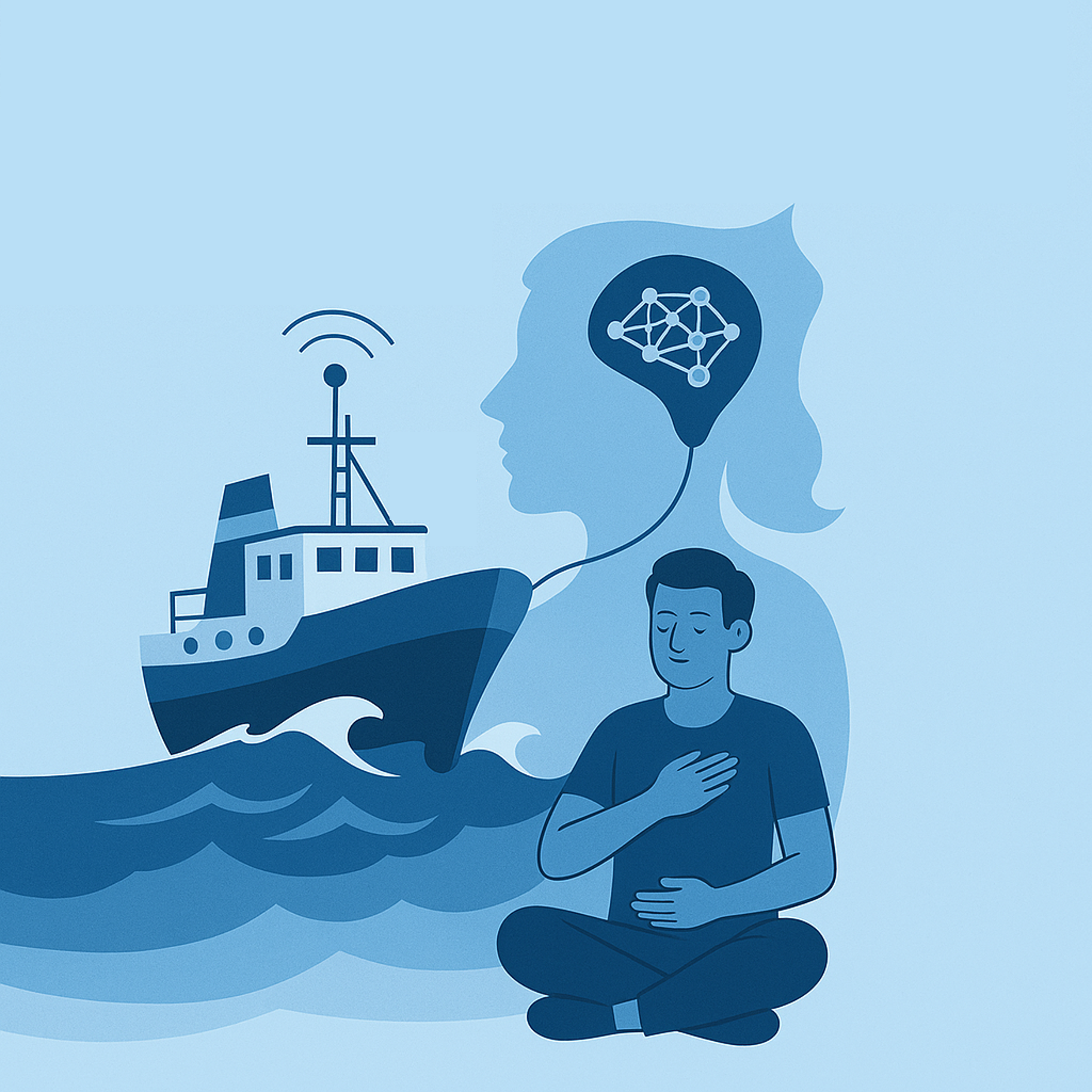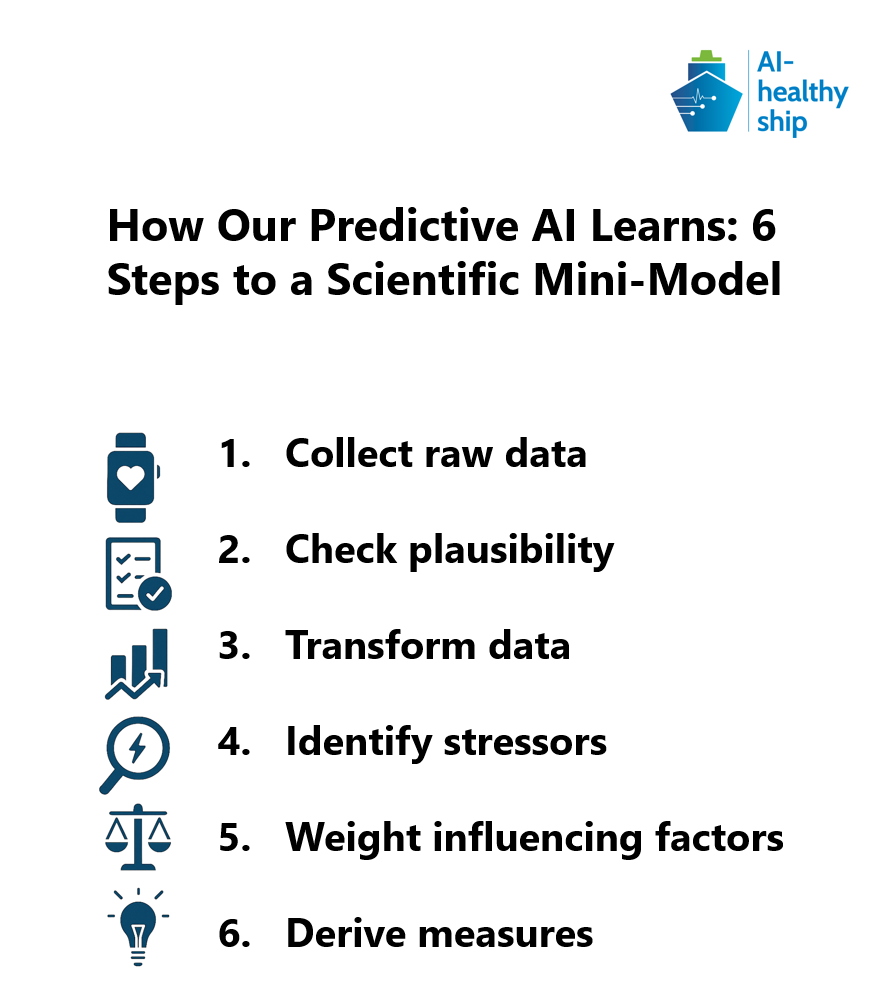From Storm to Breathing Exercise: How Our Mini-Model Improves Well-Being Onboard
Imagine this: towering waves up to ten meters high, the ship rolling through the night, the crew utterly exhausted – and the noise level remains high. It’s precisely in these moments that our app is designed to help. With scientifically grounded measures, it supports the well-being of people onboard.
But how does it actually work?
AI-Supported Assistance in Everyday Life
In its final version, our app will use artificial intelligence (AI) to provide personalized recommendations to enhance well-being. But in order to make meaningful suggestions, the system first needs to learn:
What types of stress exist – and what actually helps?
The foundation for this is what we call a mini-model – a scientifically developed dataset that systematically maps typical stress scenarios and suitable countermeasures.
Six Steps to Better Well-Being
1. Collect raw data
Sensors onboard and smartwatches collect a wide range of values – such as ship movements, heart rate, and nighttime noise levels.
2. Check plausibility
Not every recorded value is automatically usable. Extreme or missing data (like an unrealistically high heart rate) is filtered out. Only valid information is used in the model.
3. Transform data into parameters
Raw data is converted into measurable factors, such as “maximum heart rate within 24 hours” or “average noise exposure during sleep.”
4. Identify stressors
The system now analyzes which parameters indicate which type of stress. A consistently elevated heart rate, for example, may signal exhaustion; constant noise may indicate sleep deprivation.
5. Weight influencing factors
Not all stressors have the same impact. As scientific researchers, we assign different weights to each condition – noise, for instance, often has a greater influence on certain aspects of well-being than smoking.
6. Derive appropriate measures
Each factor is linked to medically reviewed recommendations. During heavy seas, for example, a targeted breathing exercise may help reduce fatigue.
Why the Mini-Model Matters
Our mini-model forms the scientific foundation of the entire AI system. It enables the app to recognize meaningful patterns and offer personalized, evidence-based guidance.
Over time, the system will continue to learn from user feedback – while always remaining rooted in rigorous scientific research.
Step by step, we’re developing an app that offers real, targeted support in demanding environments like life at sea – personal, reliable, and backed by science.





